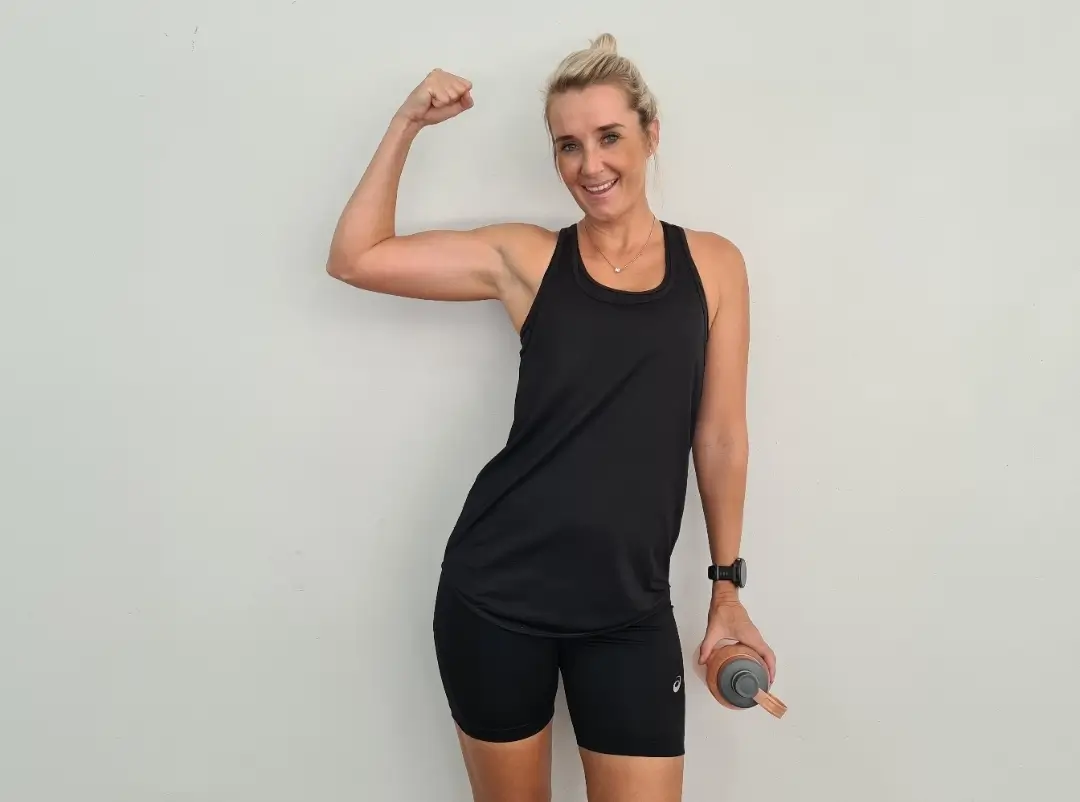Sleep is a big part of all of our lives. Athletes are no exception, even though the relationship between athletes and sleep could be even stronger. Without quality sleep, athletes will not be able to perform their best or even recover, among other issues they could face.
Hence, athletes need to pay attention to their sleeping habits and address any concerns as soon as they arise to prevent any decline in their performance and well-being.
Why is sleep important for athletes?
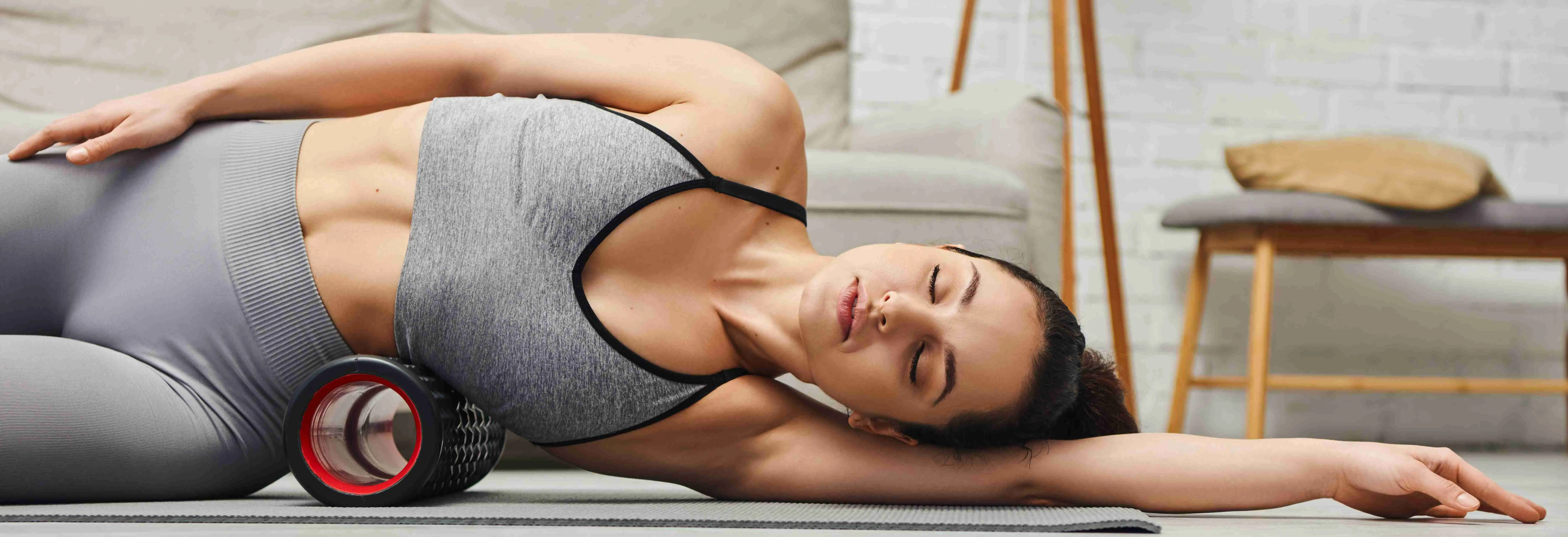
Sleep is a critical component of athletes' physical activity and performance. Its importance can't be overstated, as it plays a vital role in physical and mental recovery, allowing the body to repair and regenerate damaged tissues, restore energy levels, and improve overall athletic performance.
Sleep deprivation for athletes can lead to decreased reaction time, impaired decision-making skills, decreased muscle strength, and an increased risk of illness. Therefore, athletes must prioritize getting enough high-quality sleep to ensure optimal performance and maintain their overall health and well-being.
Factors Influencing Sleep Quality in Athletes
Athletes must prioritize their recovery and incorporate strategies that address the factors below to improve their overall performance and well-being.
Physical Exhaustion
Physical exhaustion is a common factor that can negatively impact an athlete's sleep quality. Athletes engage in intense training sessions and competitions, which put a significant strain on their bodies.
The physical demands placed on athletes can lead to muscle soreness, fatigue, and overall exhaustion. When the body is physically tired, it becomes more challenging to achieve deep and restorative sleep. This can lead to fragmented sleep patterns and a decrease in overall sleep quality.
Mental Stress and Anxiety
Athletes often face high levels of pressure to perform at their best, whether it is in training or during competitive events. This constant pressure can lead to increased levels of Cortisol hormone, which in turn increases stress and anxiety, making it harder for athletes to relax and fall asleep.
Mental health issues such as racing thoughts, worries about performance, and the need to constantly be at their best can keep athletes awake at night, leading to disrupted sleep patterns and decreased sleep quality.
Nutrition and Hydration
Adequate nutrition and hydration are essential for athletes to recover properly and optimize their sleep. Proper nutrition provides the necessary nutrients for muscle repair and growth, while hydration ensures optimal cellular function and fluid balance.
When athletes are well-nourished and properly hydrated, they are more likely to experience improved sleep quality, as their bodies can recover more efficiently. On the other hand, poor nutrition and dehydration can lead to discomfort, muscle cramps, and restless sleep, ultimately affecting an athlete's performance.
How does sleep affect athletic performance?
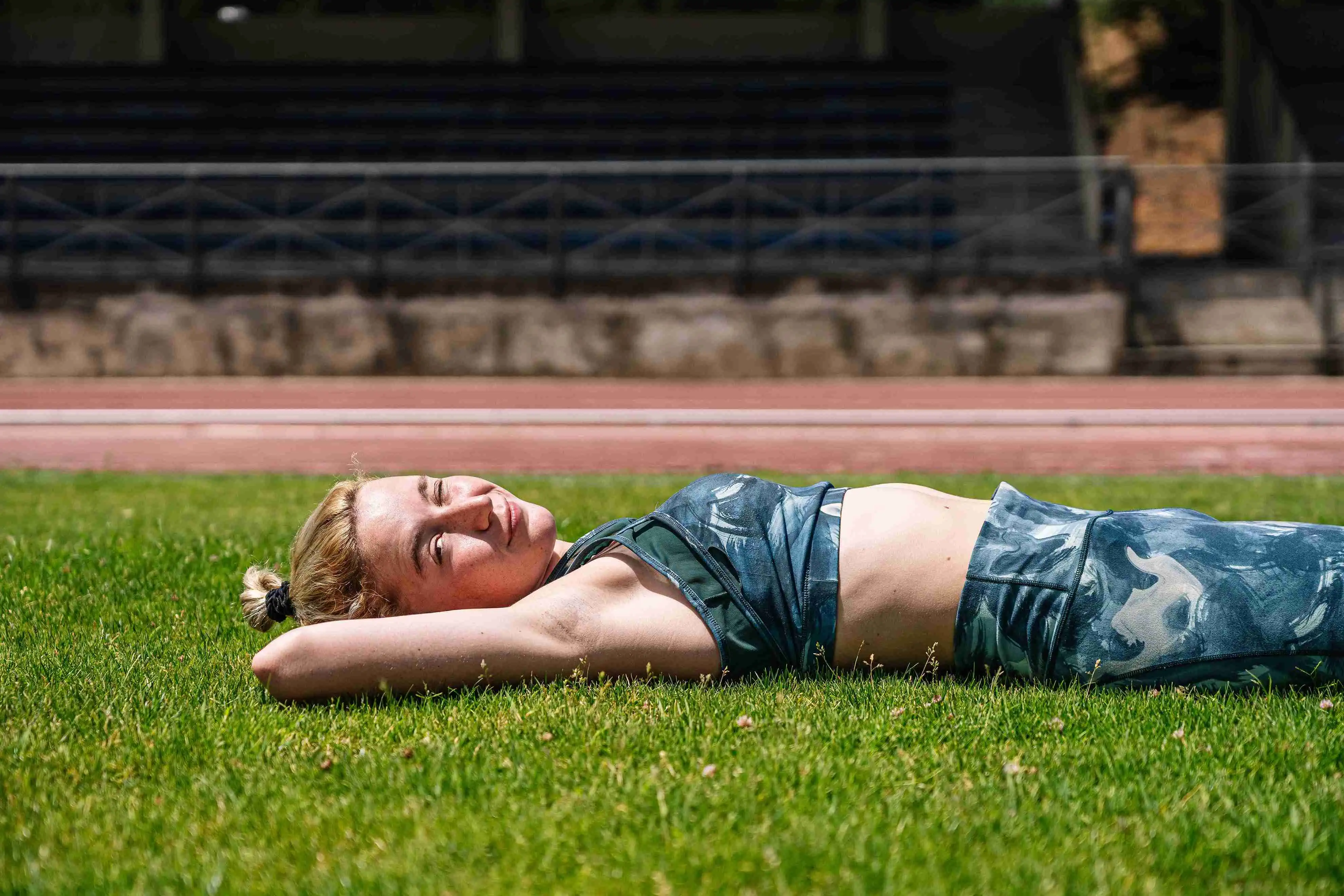
Athletes require sufficient rest to allow their bodies to recover and repair from the physical exertion they go through during training and competitions, and quality sleep has many benefits for their overall performance.
Better Endurance
When athletes get a good night's sleep, they are better able to sustain physical and mental exertion during training and competition, leading to better endurance. Their muscles can recover and regenerate more efficiently, allowing them to push themselves further and increase their stamina during training sessions and games.
Enhanced Muscle Recovery
Sleep and recovery for athletes have a huge impact on their performance, as sleep is the time when the body repairs and rebuilds itself, including the muscles. During deep sleep, the body releases growth hormone, which aids in muscle repair and recovery.
Athletes who prioritize quality sleep are more likely to experience faster muscle recovery, enabling them to perform at their best consistently.
Better Overall Performance
Athletes who get sufficient sleep are more alert and focused, allowing them to make quicker and more accurate decisions during training and competition. This can make a significant difference in their performance, especially in high-pressure situations.
Moreover, quality sleep helps to improve coordination and motor skills, which are essential for athletes in sports that require precise movements.
More Accuracy and Better Reflexes
Quality sleep also contributes to greater accuracy in athletic performance. When athletes are well rested, their cognitive function and focus are enhanced. This allows them to make quick decisions, react faster, and execute movements with precision, resulting in improved accuracy in their sport.
Whether it's throwing a ball, hitting a target, or making split-second decisions on the field, having a clear mind and sharp reflexes can make a significant difference in an athlete's performance.
Reduced Stress and Anxiety
Apart from physical benefits, quality sleep also plays a vital role in an athlete's mental health. Lack of sleep can lead to increased stress levels, irritability, and mood swings. On the contrary, athletes who prioritize sleep are more likely to have better mental health and emotional well-being.
Better sleep helps in regulating emotions and managing stress effectively, which can positively impact an athlete's overall performance and enjoyment of their sport.
How does lack of sleep affect athletes?
Lack of sleep can have a significant impact on athletes, affecting their performance, increasing the risk of injury, and even compromising their immune system, as adequate sleep is not only essential for physical recovery but also for mental alertness and sharpness, which are crucial for success in any sport.
Reduced Performance
Athletes require an adequate amount of sleep to perform at their best. Sleep deprivation can lead to reduced cognitive functions, which can hinder an athlete's ability to perform at their peak. Athletes who do not get enough sleep may experience a decline in their overall athletic performance, including decreased endurance and strength.
Risk of Injury
Sleep deprivation can negatively affect an athlete's coordination, balance, and muscle recovery, making them more susceptible to accidents and injuries. Fatigue resulting from inadequate sleep can impair an athlete's judgment and decision-making abilities, leading to poor technique or form during training or competition.
This can increase the likelihood of unexpected falls or collisions with other players, increasing the risk of injuries such as sprains, strains, or even more severe injuries.
Decreased Reaction Time
When an athlete is sleep deprived, their ability to react quickly and make split-second decisions becomes compromised. This can be particularly detrimental in sports that require quick reflexes, such as tennis or basketball.
A slower reaction time can result in missed opportunities, failed defensive maneuvers, and overall poorer performance on the field or court.
Exhaustion and Fatigue
Exhaustion and fatigue are common consequences of inadequate sleep. Athletes who don't get enough rest often experience a lack of energy and motivation, making it difficult to perform at their best. Fatigue can also lead to decreased focus and concentration, hindering an athlete's ability to execute complex plays or strategies.
Risk of Illness
During sleep, the immune system releases cytokines and antibodies that are essential for fighting off infections and illnesses. When athletes do not get enough sleep, their immune systems may become weakened, making them more susceptible to illnesses such as colds or flu.
This can have a significant impact on an athlete's training schedule and overall performance, as they may need to take time off to recover from illness.
Challenges Athletes Face in Getting Quality Sleep
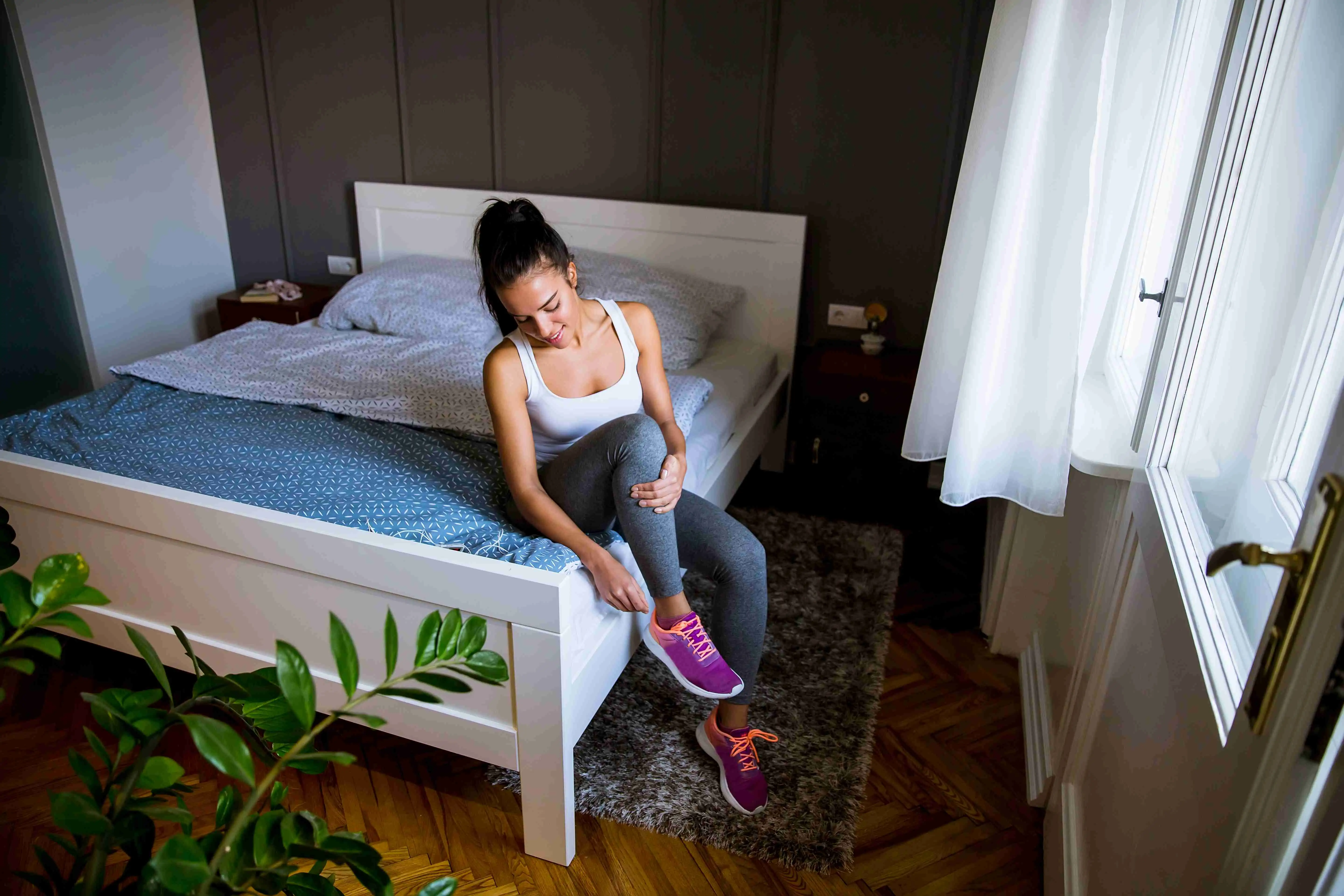
Athletes’ lifestyles can be drastically different from those of regular people, and some of the challenges that they face on a day-to-day basis could impact their sleep negatively.
Travel and Time Zone Changes
One of the biggest challenges athletes face is the frequent zone changes that come with their travel schedules. Athletes often have to travel across different time zones for competitions or training camps. This disrupts their body's natural circadian rhythms, making it difficult for them to fall asleep and wake up at the appropriate times. The resulting jet lag can lead to fatigue, poor performance, and an increased risk of injury.
Competition Stress
The pressure to perform well and the anticipation of upcoming events can cause anxiety and restlessness, making it hard for them to relax and fall asleep. This is particularly true for high-profile athletes who are constantly in the spotlight and have a weight of expectations on their shoulders. The adrenaline rush from competition can also make it difficult for athletes to wind down and get a good night's sleep.
Injuries and Sleep Disruption
Injuries can disrupt an athlete's sleep pattern in various ways. Pain from injuries can make it difficult for athletes to find a comfortable position to sleep in, leading to tossing and turning throughout the night.
Additionally, athletes' physical discomfort from injuries may cause them to wake up frequently at night, further disrupting their sleep. This lack of quality sleep can have a detrimental impact on an athlete's performance and overall well-being.
Sleep Tips For Athletes
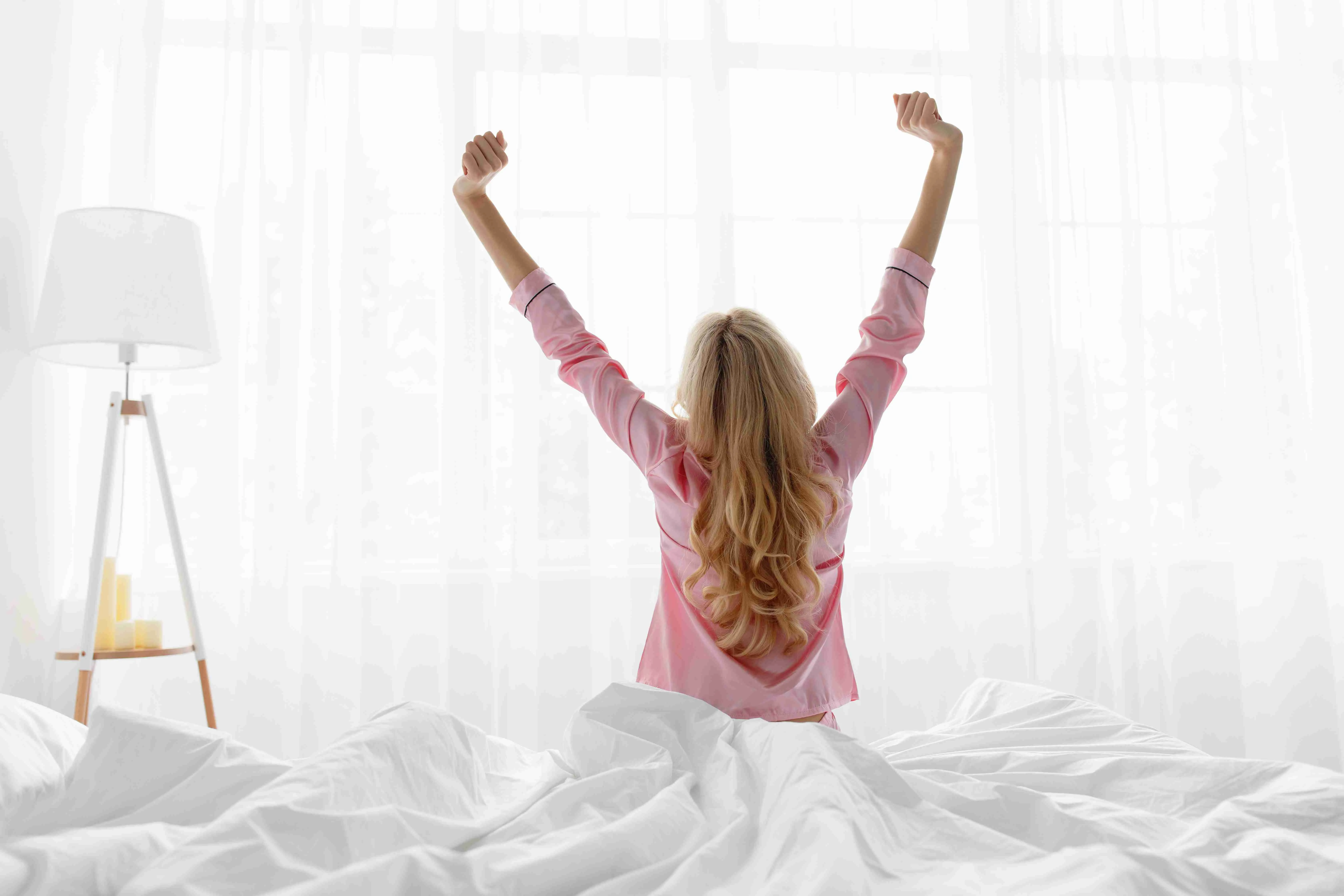
Sleep is an important aspect of an athlete's training regimen and should not be overlooked. With some tips and minor modifications, athletes can enhance the quality of their sleep, which will optimize their performance and overall well-being.
Prioritize Sleep Duration
To perform at their best, athletes need to prioritize sleep duration and establish a sleep routine. Getting enough sleep is essential for athletes, as it plays a crucial role in their overall performance, recovery, and injury prevention. Athletes should strive for a minimum of 7-9 hours of high-quality sleep each night.
Establish a Sleep Routine
To establish a sleep routine, athletes should aim to go to bed and wake up at the same time every day, even on weekends. This helps regulate their body's internal clock and improves the quality of their sleep.
Creating a relaxing sleep routine can also be beneficial. This could include activities such as reading a book, listening to calming music, or practicing relaxation techniques like deep breathing or meditation.
Create a Relaxing Sleep Environment
Sleep hygiene is another important aspect for athletes. This includes keeping the bedroom cool, dark, and quiet. Investing in a comfortable mattress and pillows can also contribute to a better night's sleep, better athletic performance, and better overall well-being.
Manage Pre-Sleep Nutrition
Eating a balanced meal with carbohydrates, protein, and healthy fats a few hours before bedtime can help regulate blood sugar levels and promote better sleep. It is also important to avoid heavy meals or foods that are difficult to digest, as this can disrupt sleep.
Limit Napping During the Day
Athletes need to limit their napping during the day. While short power naps can be beneficial for some individuals, excessive daytime napping can disrupt the nighttime sleep schedule and lead to difficulty falling asleep at night. Athletes should aim to keep their daytime naps short, ideally no longer than 20–30 minutes, to ensure they do not interfere with their regular sleep patterns.
Avoid Overtraining
Another crucial tip for athletes to improve their sleep is to avoid overtraining. Overtraining can lead to excessive physical and mental stress, which can disrupt sleep patterns. Athletes need to find a balance between training and rest to allow their bodies and minds to recover.
Incorporating rest days into their training schedule, as well as listening to their bodies and adjusting their training intensity when necessary, can help prevent overtraining and promote better sleep.
Reduce Screen Time
It can be more challenging to fall asleep as a result of the blue light that electronic devices like smartphones, tablets, and laptops emit interfering with the body's natural sleep-wake cycle. Athletes should establish a bedtime routine that includes turning off electronic devices at least one hour before going to bed.
Reduce Alcohol and Caffeine Consumption
Athletes should avoid consuming caffeine or alcohol close to bedtime, as these substances can interfere with the quality of sleep. By managing their pre-sleep nutrition, athletes can create an optimal environment for restorative sleep.
FAQs
Do athletes need more sleep?
Athletes require more sleep than the average person due to the intense physical and mental demands placed on their bodies. During exercise, the body undergoes significant stress and strain, leading to muscle fatigue and tissue damage. Adequate sleep and athletic performance are strongly connected. Additionally, athletes often have rigorous training schedules and competitions, which can cause mental exhaustion.
How do I know if I'm getting enough sleep as an athlete?
One way to determine if you are getting enough sleep is to assess your energy levels throughout the day. Some factors dictate how much sleep athletes should get, such as if you consistently feel fatigued, lack energy during workouts, or struggle to concentrate; it may be an indication that you are not getting sufficient sleep. Additionally, monitoring your athletic performance can provide insights into your sleep quality.
Does sleep help with muscle and cell recovery?
During sleep, the body undergoes various restorative processes that aid in repairing and rebuilding damaged muscles and cells. When we sleep, the body releases growth hormones that promote muscle growth and repair. Additionally, sleep allows for an increase in protein synthesis, which is essential for rebuilding cells and tissues. Moreover, sleep helps to reduce inflammation and oxidative stress, both of which can impede the recovery process.
What is the best time to exercise without affecting the quality of my sleep?
Exercise in the morning may be the best time to exercise without affecting the quality of your sleep. By exercising in the early hours, you can increase your energy levels throughout the day and get better sleep at night. This is because exercise raises body temperature, which takes several hours to cool down. By exercising in the morning, your body has enough time to regulate its temperature before bedtime, ensuring a restful night's sleep. However, listen to your body and find your best time.
How many hours of sleep do athletes need?
Athletes require an adequate amount of sleep to support their physical performance and recovery. Athletes should aim for a minimum of 7-9 hours of sleep per night. Sleep plays a vital role in muscle repair and growth, hormone regulation, and mental alertness. Insufficient sleep can lead to decreased athletic performance, increased risk of injury, and compromised immune function.
Why does a lack of sleep affect your body's performance?
One of the main reasons for this is that sleep deprivation affects our cognitive function. Lack of sleep impairs our ability to concentrate, make decisions, and process information efficiently, which can be very detrimental for athletes and can lead to decreased performance.
Conclusion
Athletes tend to prioritize sleep and understand its importance for their performance. Their intense training schedules and physical demands necessitate sufficient rest and recovery.
However, they could face some challenges, such as travel, competition stress, and other lifestyle factors that can impact an athlete's sleep patterns and overall performance. Therefore, athletes must prioritize sleep as part of their overall training and recovery regimen.
Karen Barnard
Karen is a Human Movement Science expert and a certified sports nutrition and massage therapist. At Sleepiverse, she combines her passion for human movement science and sleep health to educate herself and her readers about healthier sleep. In addition to writing articles, Karen manages a fitness studio offering private training, athletic conditioning, and sports massage therapy. She focuses on providing people with a holistic environment for people to reach their health goals, often incorporating stretch therapy to promote mental tranquillity and help people improve their sleep.
